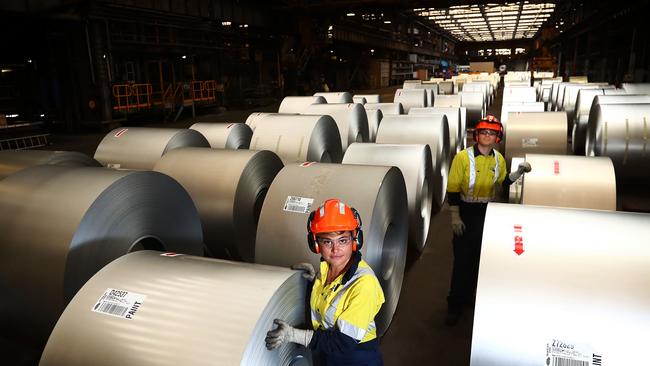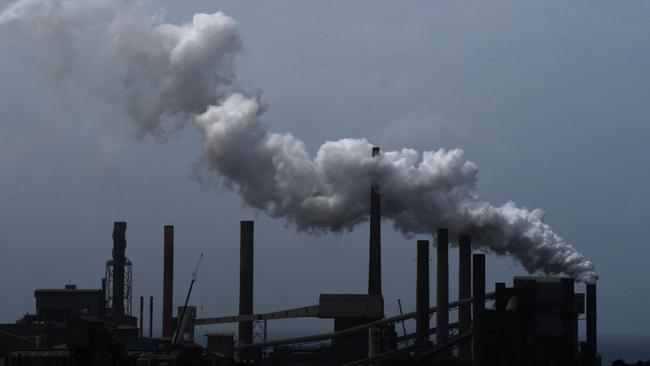BlueScope flags earnings hit, more uncertainty and NZ review
BlueScope has forecast a big fall in annual earnings, as it announced a $200m writedown on steel assets and a NZ review.

BlueScope has forecast a big fall in 2020 financial year earnings after slowing demand and patchy trading during the COVID-19 pandemic and will take a $200m writedown on its steel assets amid a strategic review of its New Zealand operations.
After withdrawing its outlook in March for the second half of the 2020 financial year, citing the unprecedented environment and economic uncertainty, BlueScope said it now expects underlying earnings before interest and tax of $260m.
It had previously forecast an earnings performance like that achieved in the first half, of $302.4m.
The expected lower second-half result will hand the steelmaker earnings of $560m for the 2020 financial year, down 58 per cent on last year’s result of $1,348bn.
The outlook for the first half of 2021 was also downbeat with a high level of uncertainty due to the pandemic and broader macroeconomic weakness.
“The results show the strength of our business model and our financial disciplines. However, there is currently a high level of uncertainty in BlueScope’s key markets at the start of the 2021 financial year due to the pandemic and weaker steel spreads,” BlueScope chief executive Mark Vassella said.
It will also record a writedown of $200m after reviewing the carrying value of its New Zealand and Pacific Steel segment, based on lower expected long-term earnings. It holds net cash of $100m.
A strategic review of its New Zealand assets is underway, with the manufacturer saying it was monitoring developments in others parts of the country’s domestic industrial base. The unit was “impacted by the compulsory government shutdown of operations during March and April, and ongoing cost pressures” in the second half of 2020, BlueScope noted.
Rio Tinto triggered exit clauses in a New Zealand power contract and announced the closure of its Tiwai Point smelter on July 9, blaming high energy costs, saying it had not been able to secure the “power price reduction” needed to keep the smelter operating.
BlueScope said its NZ review would “re-evaluate the footprint of the business to ensure its financial viability in a challenging operating environment, made more uncertain by public policy settings in carbon, trade and energy.” An update is due at its annual results on August 17.
BlueScope said while some of its businesses had been hit by coronavirus closures, conditions had been better than expected due to ongoing building and construction demand.

Its Australian steel products unit saw resilient domestic demand during the June half while its North Star steel mill in the US state of Ohio suffered from weak demand after car companies General Motors, Ford and Fiat Chrysler all agreed to temporarily shut down production to limit the spread of coronavirus, which hit realised prices and spreads.
BlueScope’s North American buildings business saw lower dispatch volumes due to slowing demand and project delays.
China led the way for its building products Asia and North America division, with a performance near that recorded in the first half although Malaysia, Indonesia, Vietnam and India all lagged.
China has warned Australia that excessive anti-dumping complaints by BlueScope threaten the nation’s steel industry and could impact crucial iron ore exports.
The warning came in a submission to the Anti-Dumping Commission, in response to an import investigation prompted by BlueScope’s complaints about imports competing with its Truecore aluminium zinc coated steel.
China’s complaints come as relations between Beijing and Canberra come under strain, and follow BlueScope’s recent declaration that anti-dumping rules are essential to protect Australia’s economy. BlueScope has filed nearly 20 anti-dumping complaints since 2015.
BlueScope shares fell 1.3 per cent, or 15c each on Friday, to $11.24, against a 0.4 per cent rise in the benchmark S&P/ASX 200 Index.





To join the conversation, please log in. Don't have an account? Register
Join the conversation, you are commenting as Logout